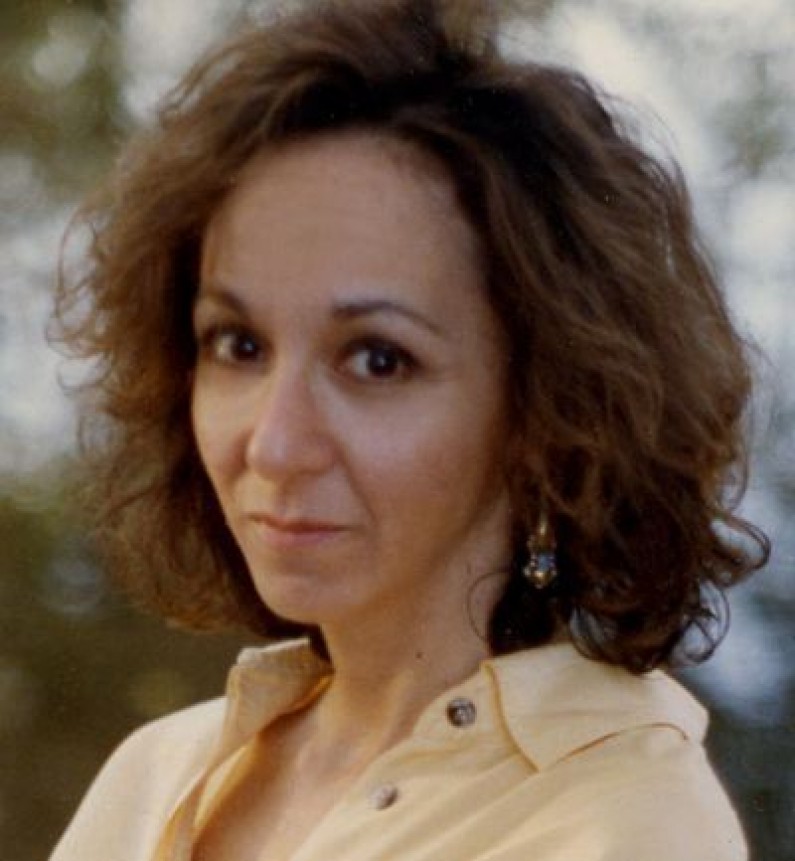
(edited for clarity and length)
Marguerite Feitlowitz, a literature faculty member who has taught at Bennington for twenty-two years, is retiring after the spring 2023 term. We sat down in her office on a Friday afternoon and discussed her recent translation of a Night, collection of poems by the Chilean poet Ennio Moltedo, resistance to and expansion of literary translation, and the braveness and boldness of Bennington students.
IR: You just had a book launch for a translation of poems by the Chilean poet Ennio Moltedo. What was it like to translate those prose poems?
MF: Well, I’ve translated prose poems before. The book before that was called Small Bibles for Bad Times by Liliane Atlan, who was a French Holocaust poet. I’ve translated poetry in verse, formal poetry, informal or poetry that’s freer, shall we say. I’ve translated prose poems, and I’ve translated poetry that is embedded in prose works and works of theater. So, it sort of drew on all those different experiences. Ennio Moltedo often described these poems as poems, dramas, microficciones or microfictions, and vignettes, and they’re all of them at once. So a lot of things that one might bring from translating theater, which I’ve done, I have to bring to translating these poems. One of the things that’s interesting about Moltedo is his first book of poems was verse poetry, and after that he delineated that book and he never again wrote in lines. He said he was looking for more subtle cadences and he felt a little tyrannized by the implicit imperatives to rhyme. And it’s easy to rhyme, it’s comparatively easy to rhyme. Among his many guises as a poet, he’s a theoretical poet. He’s a poet of controlled rage. He’s a political poet. He can be allegorical, he can be surreal, he can be lyrical, sometimes all at the same time. So it wasn’t so much that I had to, I think as your question implies, that I had to confront these poems as prose poems, but it was everything he was doing in these individual poems. One of the special challenges was that he had a number of poems that consisted of a single line. It could be aphoristic, so those were really hard because you had 5, 6, 7 words. As far as what it was like to translate the collection, it was delightful because I hadn’t planned it. I was in Santiago for a human rights and culture conference. The day before the conference I wandered into a bookstore and I had a list of Argentine novels I wanted. From behind me came a voice that said “You’re in Chile, land of poets.” And so he sat me down, took away the Argentine novels, and just brought me book after book of Chilean poetry, and I just fell in love with it. So it was just a coincidence, and it’s been a great project to work on. I got a lot of support for the project. I got a National Endowment for the Arts Fellowship, the journal publications were very immediate, and we’ve had a wonderful publisher. I think there’s something else going on in this book, which was written during the Pinochet dictatorship. There are very specific markers for that time, but it also feels really immediate, and a lot of the critiques really respond to our present dilemmas.
IR: That’s so fascinating, especially coming at translating poetry from the perspective of translating theater. You’ve been at Bennington for over twenty years teaching. What has it been like seeing so many classes of students make it through here and to the other side?
MF: That’s a little dramatic, but there is life after Bennington! It’s been wonderful. It does still kind of shock me, and I think it’s been 22 years now, with time off for sabbaticals. One of the lovely things about teaching at Bennington is that because we’re small, because we privilege mentoring, and because we have the luxury of getting to know our students well, we stay in touch with students. And so some of the people that I’ve taught years ago are family friends and colleagues, and that’s a really wonderful thing. I think the one thing that seems to be a constant, to the extent that there are constants at Bennington, is that I think we get, and I hope we always get, students who are questors, who are questing, who are not expecting to leave Bennington exactly as they showed up, exactly as they arrived. It’s been really exciting to see people often come with one idea that they expect to do and then do something else, or they complicate it in ways they hadn’t thought about. I think one of the things that’s been really interesting in the years since I’ve been here is that Bennington has always been a great place to do interdisciplinary work, but I think it’s gotten better, more robust, and more sustained. And it’s been great to see that students can come here and fashion a concentration that’s a rigorous concentration, even though if you were to look at our curriculum, you wouldn’t see it as you see at other schools as a major offering. I think one of the things I’m also always impressed with is that I think Bennington students are super brave. Really bold, particularly in creative work. Students take themselves seriously, in good ways, and I hope you all know that we take you seriously. Teaching at Bennington, we prepare classes, but it’s always surprising and I love that. I go into a classroom, and there’s always questions you don’t expect, perceptions you hadn’t thought of. It’s always fresh. I’ve never had the feeling, coming back in the fall, “ok, here I’m going again.” And I think a lot of that is that we have such liberty in what we teach. We choose what we teach. So we’re choosing courses, on some level, for our own reasons.
IR: I wanted to talk about the way that academia has been mythologized and romanticized in recent years, especially with The Secret History coming into culture so much. I remember during my first week on campus last fall, when the freshman class was doing introductions and saying why they chose to come to Bennington, nearly everyone said because of The Secret History. I thought it was so fascinating that one creative work can inspire a whole generation of students. I was wondering what your thoughts are on this new perspective of academia and creative work, and how it’s impacting the way people are viewing Bennington as an institution and a source of creative works.
MF: I think Bennington has always had a mystique, before The Secret History. When you start to think of the painters who taught here, so much modern dance was created here, the writers who’ve been here. We’ve always had that, since the inception. And back in the day, in 1932 when Bennington opened its doors, the idea of having parody between the arts and academics was extremely unusual. The fact that people come to Bennington because they want to be writers, because they want to be painters, because they want to be dancers, it’s just part of our DNA. It sounds like a cliche but it’s true. I think the fact that Donna Tartt and Bret Easton Ellis and some others were extremely successful writers and extremely young is inspiring. I think one of the things I was struck by, last week at Bennington Works, was the tenor of questions from people in the audience. The first question was, with so many great writers around here, do you ever get imposter syndrome? And I thought this was fascinating, because they’re asking their peers this question, which means they watch these students read their own work and it’s not just talent and industry but a kind of moral authority, which I thought was so impressive. That’s another thing I really love about Bennington, and what’s really known about us. The relationship of students working together creatively is really special. We’re not a shark tank here, and while there’s a lot of challenge here, I think students challenge each other in lovely and healthy ways. I also think, when you asked how academia has been mythologized, it’s also being demonized in larger culture: that the humanities are a waste of time, that the arts are frivolous and unpatriotic. Higher education, liberal education, and certainly progressive education has been demonized. They’re being underfunded, defunded, distorted, according to particular political programs. And so we’ve always been outside of that. This is a very delicate moment, a precarious moment, for the humanities. And I believe we have to keep doing what we do. The days are over when we could say I’m going to major in this and then be fine. That’s over. I think Bennington students know how to innovate, they know how to improvise, they know how to synthesize what they learn from different classes. I also think Bennington students are great at collaboration. So I believe this is a very fine way to get educated. I really believe in it. And I think we just need to keep it going and protect it and deepen it and keep doing what we do.
IR: How are you feeling about retiring after this semester?
MF: I made my decision a year ago and I feel this is absolutely right for me. I have one single reason for retiring from teaching, because I’m going to do everything else I do. I want more time at my desk. For writing, translating, reading, studying. And it’s really a matter of time. My projects need long immersion, that’s the way I always like to work, though I have shorter projects as well. I also want to travel on my own schedule. But I feel really fortunate. I’m choosing among things I love. I’ve loved teaching. It can also be consuming. I feel at peace with that decision. It’s the right decision. I will miss certain things, and the things I’ll miss, well, certain people of course. When I read something that I know I’m going to be talking about with students, I read it in a very different way. Because it’s the social aspect of it that adheres in the reading. And so when I have students I know, I think, “oh, Iris will really be interested in this, I need to make sure that we talk about this because I know Iris will be all over it.” Or we have conversations that accumulate over the course of a time, and when I prepare a class, I think about what we talked about a few weeks ago, and I think, “let’s bring that with us.” So I will miss that, I’m sure. I’ll miss being around young people. I like being around young people. I particularly like being around Bennington young people. But I will do some of that still. I’m active on the PEN America Translation Committee and American Literary Translators Association, so I will be doing some mentoring through those for what we call emerging translators. Some of those emerging translators are people who have had complete careers at the UN, where they’ve been physicians, and they’re multilingual and want to get into literary translation. There are also people your age who are entering the profession. I think the other thing, I just have to say, there’s not a day that goes by that I’m not filled with the beauty of this place. The physical, natural beauty. And I’ll always think of that.
IR: What is the importance of literary translation to you? I know we talked in the Dybbuks, Golems, Tradition and Resistance class this term about how Yiddish is the language of the Jewish diaspora, and how important it is to preserve a language that is so deeply rooted in the history of a particular location and culture. How do you think this can be broadened to languages and literary translation?
MF: Lesser known languages, ‘smaller’ languages, there’s a lot of attention now on fostering translation from those languages, and that’s hugely exciting. And it’s enormous. If there’s a language that’s spoken by very few people, that doesn’t mean they don’t have great literary works, and literary works that should be known. Translation is essential. And multiple translations, not just into English or hegemonic languages, but lots of languages. That’s what’s important. I would say for me, because I grew up polyglot, I’ve always been operating in more than one language at a time. It just has always felt natural. It feels like everything I’ve ever written has had translation as essential to its process, essential to its conception. Questions of language are what I think about a lot. The work I did in Argentina was very much about language and language used as a means of political oppression and torture. It’s just sort of inseparable from who I am. But I also think that in terms of the wider world, it’s just essential for us to have a sense of with whom are we on this earth? Who is making what and why should we need stories and texts and poems and forms that we don’t even know about that come from every place?
IR: My mom and my bubbe speak Yiddish sometimes and there’s certain phrases that I can translate and I can try to explain it, but there’s a physicality to it, and a sense of comfort and home that’s hard to translate and hard to describe and convey without experiencing it firsthand.
MF: It’s so interesting you say that. One of the things we’ve been working on the last year in my translation classes is resistance to translation, what resists translation, and you just gave a perfect example. Last term I taught a class on Reading and Writing Multilingual Texts, and so students asked, when do I need to break into Urdu? When does English fall? Is this the only way to say it the same in Spanish, or French, or Hindi, just to think of the languages we had. We’re working on this term, what is often called untranslatables. There’s a big dictionary of untranslatables, not the first of its kind, but it’s a really important landmark, and it’s on reserve at Crossett Library. It’s for terms that we keep trying to translate, for millennia. Terms like love, terms like justice, terms like punishment. There’s a whole big book of them. I think it’s really important to think about, and it’s fascinating to think about, everything from slang and hybridized idioms to terms of philosophy, terms of jurisprudence, terms of medicine. The question of, what is pain? Not all cultures necessarily think pain is unusual. There’s questions of the body. How do you translate the notion of pain? Does pain everywhere have a kind of moral level? You’ve probably heard people brag about their pain thresholds. Why is it a good thing? One of the reasons I wanted to talk so much and spend so much time on the untranslatables is to get away from the idea that translation is a mechanical operation, that we’re taking these phrases from one language and just bringing them over. There’s a whole lot of other thinking that goes into it. It’s not mechanical, it’s not automatic. We have to be aware of our assumptions. That’s something that can easily fly from one language to another.
IR: What do you think matters most to you as a writer, and on the opposite end, what matters to you most as a reader?
MF: I’m not good at anything vertical. So making a vertical column is really hard for me. In terms of writing, I love it, I just love to do it. That’s the most important thing. It’s how I really know what I’m thinking, how I really know what I’m feeling. It’s my way of being both in touch and being inward. That’s hard to talk about. There’s a tremendous amount of sensual joy in it. I’ve written about some really dark, dark things, and I would say that craft can definitely be a form of consolation. As far as reading, the most important thing, and again, I always trip over the most, as though I’m being asked to make a list. I hope I can respond to lots of different kinds of texts. I was reading well before I went to school. I think it was my way of being in the world, really. It was my form of travel and being with my mother, who read to me a lot, and also being absolutely alone, which I’ve always needed. And it’s just been everything. Growing up, I never wanted to read about girls like me. I always wanted to transport. I always wanted to read about people and places and times that were not the ones I ostensibly was living in. So reading has been huge for that. It also helped me to get my feet on the ground politically, socially, in terms of social justice, in terms of what is going on at the same time. Reading and writing have been everything, so I find myself almost stymied to answer the question. This will sound idiotic, but one of the things I’ve always loved is just words. I just like words. And so that was, I think that’s also one of the reasons that reading and writing and translating have always been very fluid to me. With translating, you’re working and you don’t have to give up one of your languages. Maybe you have to give up other languages, but at least you’re working with two of them. I think the other thing about translation is that it allows me to write in ways I don’t normally write. So, I like to choose writers who write very differently from the way I do. That’s part of the adventure of it.





Be First to Comment